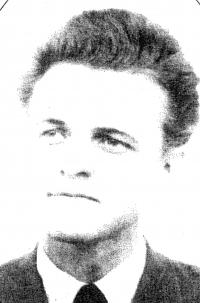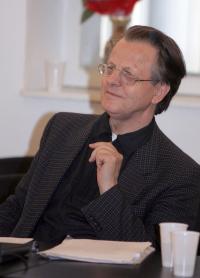But, I felt that we had something to say, that we owed it to ourselves to try to find solutions, as best as we could, with the resources we had at our disposal, in order to determine a certain change in attitude, a way of being involved in the society.

Download image
He was born on October 12, 1934, in Vârful Câmpului, Botoşani County.In 1957, while studying at the Faculty of History of the University of Iaşi, Alexandru Zub participated, along with other colleagues, in the organization of the 500th anniversary of Stephen’s the Great (Romanian: Ştefan cel Mare) ascent to the throne, which took place between April 12 and 14. On May 15, 1957, the Securitate in Iaşi initiated criminal proceedings against Alexandru Zub and Mihalache Brudiu, both members of the organizing committee for celebrating the 500th anniversary from April 1957. The Securitate accused them of plotting to turn the celebration in Putna „into a nationalist, anti-Soviet and antidemocratic demonstration, which they did not succeed due to the preventive measures taken by the governing bodies in Iaşi”, suspecting them of planning to organize such actions in the future. The grounds for suspicion lay in reading the personal mail exchanged between the students in Iași and their fellow peers in the country. However, the arrests did not follow immediately. The young initiators of the Putna celebration graduated from university in the summer of 1957. Alexandru Zub was employed as a researcher at the Institute of History in Iaşi, while Alexandru Popescu - the leader of the student organizations within the University of Iaşi - received a teaching position at a school in Haţeg, Dumitru Vacariu worked as a teacher in Vaslui and Mihalache Brudiu as an archaeologist. All of them were pursued by the communist authorities between May 1957 and March 1958.Alexandru Zub was arrested in a train on March 6, 1958, on his way to Bucharest, Aurelian Popescu on March 10, Mihalache Brudiu several days later, on March 14, while Dumitru Vacariu was the last one to be taken into custody. According to the prosecution, the four young men were accused of „intent to commit acts of hooliganism in order to provoke mass protests, which they failed to succeed because the state authorities managed to obtain this information and, as a result, take appropriate preventive measures”. The extremely serious accusation of „rebellion” was changed over the course of the trial into „machination against the socialist order”, an offence that carried lower penalties. Alexandru Zub and Aurelian Popescu were sentenced to 10 years of imprisonment in a correctional institution, while Mihalache Brudiu and Dumitru Vacariu received 8 years in prison. After spending six years and two months in detention in Iaşi, Jilava, Gherla, as well as in the Salcia and Giurgeni labor camps, Alexandru Zub was released on April 16, 1964. After his release, Alexandru Zub dedicated himself to research, presenting his PhD thesis in 1973 at the University of Iași. In 1990, he became the director of the A. D. Xenopol Institute of History and Archaeology, a corresponding member of the Romanian Academy in 1991 and a full member in 2004, serving as head of the Academy’s History and Archaeology Department from 2006. He is now living in Iaşi.

